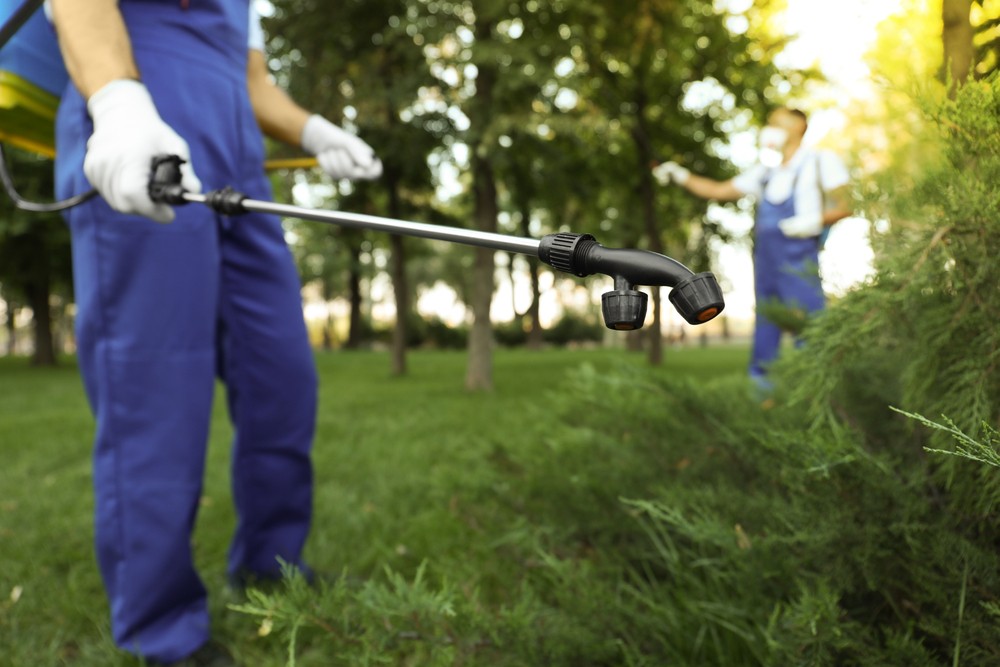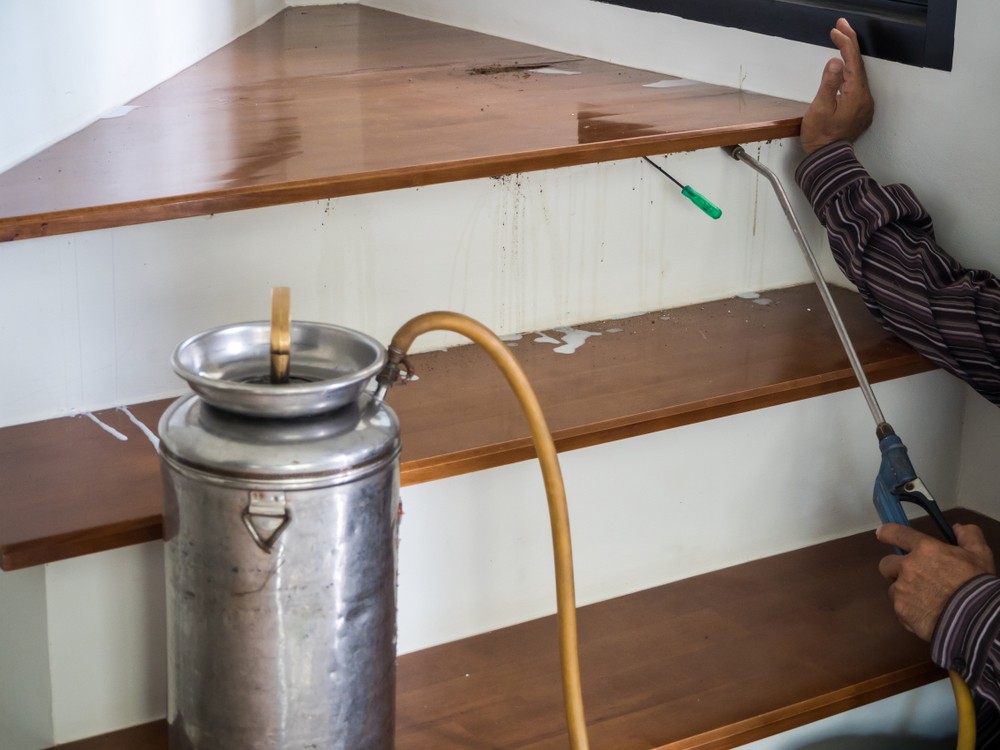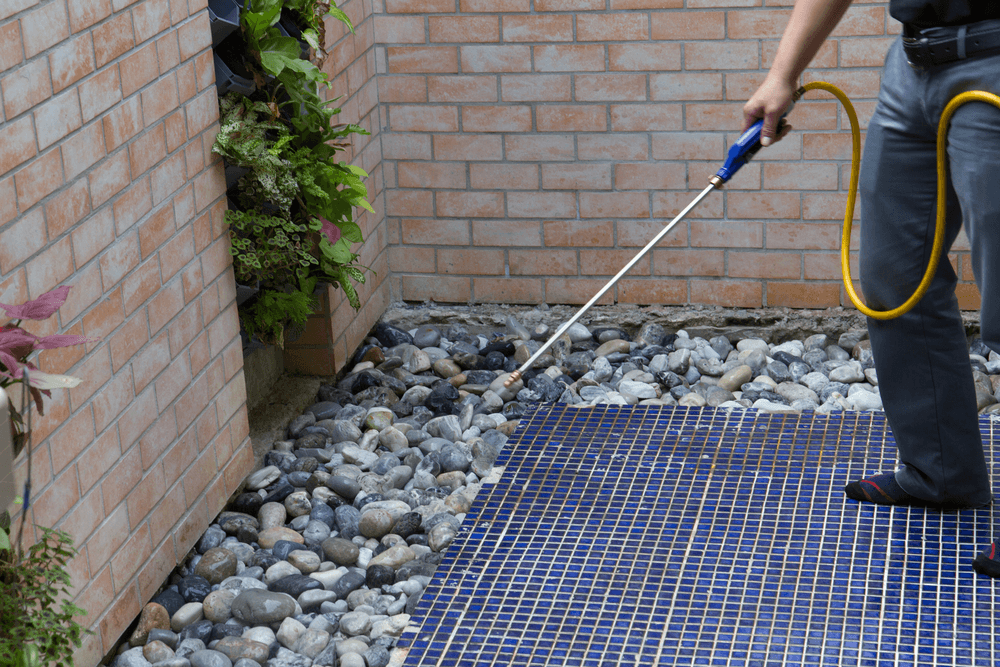
Blog
October 29, 2024
Streamlining Field Operations for Pest Control Businesses

Blog
October 29, 2024
Streamlining Field Operations for Pest Control Businesses
Pest control businesses face unique challenges in managing field operations, often needing help with scheduling, resource allocation, and communication across dispersed teams. By streamlining these operations, pest control businesses can significantly improve efficiency, reduce costs, and deliver better client service. Small business consulting firms play a pivotal role here, offering expertise and tools that can revolutionize field management. This article explores the steps and solutions consulting firms provide to optimize field operations for pest control companies.
Understanding the Field Operation Challenges in Pest Control
Pest control companies operate in a highly competitive and service-oriented industry. Fieldwork requires teams to respond to customer needs, often at unpredictable times, while managing inventory, safety protocols, and location logistics. Common challenges in field operations include:
Scheduling Conflicts: Managing multiple appointments and urgent calls is a balancing act that often leads to overlaps or delays.
Communication Gaps: Field teams need real-time information for optimal service, but many companies still rely on outdated communication channels.
Inventory Management: Technicians carry various chemicals and equipment, which must be tracked and restocked efficiently.
Customer Expectations: Today's customers expect punctual, effective, and transparent services, adding to the operational complexity.
Small business consulting firms assist pest control businesses in addressing these challenges by implementing modern solutions that streamline daily operations.
The Role of Small Business Consulting Firms in Optimizing Field Operations
1. Implementing Advanced Scheduling Software
One of the most effective ways to streamline operations is through automated scheduling software. Consulting firms introduce pest control companies to scheduling platforms that use AI-driven algorithms, assigning jobs based on location, technician availability, and urgency.
Advanced scheduling software minimizes travel time and reduces costs associated with fuel and technician overtime.
Companies can handle more appointments daily, increase productivity, and ensure on-time service, enhancing customer satisfaction.
2. Real-Time Communication and Tracking Tools
Communication is crucial in field operations, and consulting firms emphasize the importance of digital communication platforms. Tools like GPS tracking and real-time messaging allow managers to monitor field teams, dispatch new appointments instantly, and adjust schedules based on traffic or last-minute cancellations.
With real-time tracking, pest control companies gain a bird’s-eye view of operations, enabling quick resource reallocation.
GPS data provides insights into route optimization, reducing travel time and fuel expenses.
3. Inventory Management Solutions
Effective inventory management ensures that field technicians always have the necessary tools and materials. Consulting firms recommend integrating inventory tracking systems that update in real-time whenever a product is used or restocked.
This system minimizes downtime due to missing supplies, improves cost control, and keeps field teams adequately equipped for every service call.
Consulting firms help pest control businesses implement mobile apps or cloud-based platforms, allowing technicians to check inventory on the go and request replenishments directly from the field.
4. Optimizing Resource Allocation
A critical part of field operations is ensuring efficient resource use. Consulting firms assist pest control businesses in assessing resource allocation using data analysis tools to understand peak service times, common service requests, and regional demand.
By analyzing this data, companies can assign more technicians during peak hours or high-demand seasons, ensuring faster response times and balanced workloads.
Consultants often leverage seasonal trends to anticipate demand, reducing pressure on staff and improving customer satisfaction.
5. Data Analytics and Performance Metrics
Consulting firms introduce pest control businesses to performance metrics that track service time, customer satisfaction scores, and technician productivity. These metrics are essential for identifying areas that need improvement.
Data analytics platforms collect information from field operations, enabling managers to identify patterns, optimize procedures, and provide feedback to field staff.
Regular data analysis helps pest control businesses make informed decisions, keeping them competitive and responsive to client needs.
6. Enhancing Customer Communication and Feedback
A streamlined feedback loop between customers and pest control businesses is essential for service improvement. Consulting firms often implement customer relationship management (CRM) systems to collect feedback, address complaints, and enhance communication.
CRM platforms consolidate customer interactions, allowing businesses to respond quickly to complaints, follow up after services, and maintain positive relationships.
Automation features in CRMs send appointment reminders, estimated arrival times, and follow-up emails, strengthening customer trust and satisfaction.
Advantages of Streamlined Field Operations for Pest Control Companies
Optimizing field operations offers a range of benefits for pest control businesses:
Improved Efficiency: Automated scheduling and communication systems save time and reduce manual errors.
Reduced Operational Costs: Optimized routes, schedules, and inventory reduce fuel expenses, overtime, and material wastage.
Enhanced Customer Satisfaction: Timely service and clear communication create positive client experiences and higher retention rates.
Greater Flexibility: With better resource allocation, pest control businesses can more effectively adjust to seasonal demand and sudden spikes.
Employee Satisfaction: Streamlined processes reduce workload stress for field teams, boosting morale and productivity.
Small business consulting firms play an instrumental role in achieving these benefits by implementing customized solutions that cater to pest control services' unique demands.
Conclusion
Managing field operations efficiently is a constant challenge for pest control businesses but essential for success. By partnering with small business consulting firms, these companies can access the latest tools and strategies to simplify operations, enhance customer service, and reduce operational costs. Embracing these innovations helps pest control companies stand out in a competitive market, delivering timely, effective, and reliable service that meets client expectations.
FAQs
1. How do consulting firms help improve field operations for pest control?
Consulting firms bring expertise and tools like scheduling software, inventory management systems, and data analytics to optimize field operations, enabling pest control businesses to deliver timely, efficient service.
2. What benefits do pest control companies gain from using scheduling software?
Scheduling software minimizes travel time, reduces fuel costs, and allows businesses to handle more appointments daily, improving productivity and customer satisfaction.
3. How does real-time tracking improve field operations for pest control businesses?
Real-time tracking provides managers with visibility into field teams' locations, enabling quick resource reallocation and optimized routing to save time and fuel.
4. Can data analytics help in field operation management for pest control?
Data analytics tracks performance metrics like service time, technician productivity, and customer satisfaction, helping businesses identify areas for improvement and make data-driven decisions.
5. How does inventory management affect field efficiency in pest control?
With efficient inventory management, technicians can access necessary tools and materials, reducing downtime and ensuring consistent, quality service during field operations.
Understanding the Field Operation Challenges in Pest Control
Pest control companies operate in a highly competitive and service-oriented industry. Fieldwork requires teams to respond to customer needs, often at unpredictable times, while managing inventory, safety protocols, and location logistics. Common challenges in field operations include:
Scheduling Conflicts: Managing multiple appointments and urgent calls is a balancing act that often leads to overlaps or delays.
Communication Gaps: Field teams need real-time information for optimal service, but many companies still rely on outdated communication channels.
Inventory Management: Technicians carry various chemicals and equipment, which must be tracked and restocked efficiently.
Customer Expectations: Today's customers expect punctual, effective, and transparent services, adding to the operational complexity.
Small business consulting firms assist pest control businesses in addressing these challenges by implementing modern solutions that streamline daily operations.
The Role of Small Business Consulting Firms in Optimizing Field Operations
1. Implementing Advanced Scheduling Software
One of the most effective ways to streamline operations is through automated scheduling software. Consulting firms introduce pest control companies to scheduling platforms that use AI-driven algorithms, assigning jobs based on location, technician availability, and urgency.
Advanced scheduling software minimizes travel time and reduces costs associated with fuel and technician overtime.
Companies can handle more appointments daily, increase productivity, and ensure on-time service, enhancing customer satisfaction.
2. Real-Time Communication and Tracking Tools
Communication is crucial in field operations, and consulting firms emphasize the importance of digital communication platforms. Tools like GPS tracking and real-time messaging allow managers to monitor field teams, dispatch new appointments instantly, and adjust schedules based on traffic or last-minute cancellations.
With real-time tracking, pest control companies gain a bird’s-eye view of operations, enabling quick resource reallocation.
GPS data provides insights into route optimization, reducing travel time and fuel expenses.
3. Inventory Management Solutions
Effective inventory management ensures that field technicians always have the necessary tools and materials. Consulting firms recommend integrating inventory tracking systems that update in real-time whenever a product is used or restocked.
This system minimizes downtime due to missing supplies, improves cost control, and keeps field teams adequately equipped for every service call.
Consulting firms help pest control businesses implement mobile apps or cloud-based platforms, allowing technicians to check inventory on the go and request replenishments directly from the field.
4. Optimizing Resource Allocation
A critical part of field operations is ensuring efficient resource use. Consulting firms assist pest control businesses in assessing resource allocation using data analysis tools to understand peak service times, common service requests, and regional demand.
By analyzing this data, companies can assign more technicians during peak hours or high-demand seasons, ensuring faster response times and balanced workloads.
Consultants often leverage seasonal trends to anticipate demand, reducing pressure on staff and improving customer satisfaction.
5. Data Analytics and Performance Metrics
Consulting firms introduce pest control businesses to performance metrics that track service time, customer satisfaction scores, and technician productivity. These metrics are essential for identifying areas that need improvement.
Data analytics platforms collect information from field operations, enabling managers to identify patterns, optimize procedures, and provide feedback to field staff.
Regular data analysis helps pest control businesses make informed decisions, keeping them competitive and responsive to client needs.
6. Enhancing Customer Communication and Feedback
A streamlined feedback loop between customers and pest control businesses is essential for service improvement. Consulting firms often implement customer relationship management (CRM) systems to collect feedback, address complaints, and enhance communication.
CRM platforms consolidate customer interactions, allowing businesses to respond quickly to complaints, follow up after services, and maintain positive relationships.
Automation features in CRMs send appointment reminders, estimated arrival times, and follow-up emails, strengthening customer trust and satisfaction.
Advantages of Streamlined Field Operations for Pest Control Companies
Optimizing field operations offers a range of benefits for pest control businesses:
Improved Efficiency: Automated scheduling and communication systems save time and reduce manual errors.
Reduced Operational Costs: Optimized routes, schedules, and inventory reduce fuel expenses, overtime, and material wastage.
Enhanced Customer Satisfaction: Timely service and clear communication create positive client experiences and higher retention rates.
Greater Flexibility: With better resource allocation, pest control businesses can more effectively adjust to seasonal demand and sudden spikes.
Employee Satisfaction: Streamlined processes reduce workload stress for field teams, boosting morale and productivity.
Small business consulting firms play an instrumental role in achieving these benefits by implementing customized solutions that cater to pest control services' unique demands.
Conclusion
Managing field operations efficiently is a constant challenge for pest control businesses but essential for success. By partnering with small business consulting firms, these companies can access the latest tools and strategies to simplify operations, enhance customer service, and reduce operational costs. Embracing these innovations helps pest control companies stand out in a competitive market, delivering timely, effective, and reliable service that meets client expectations.
FAQs
1. How do consulting firms help improve field operations for pest control?
Consulting firms bring expertise and tools like scheduling software, inventory management systems, and data analytics to optimize field operations, enabling pest control businesses to deliver timely, efficient service.
2. What benefits do pest control companies gain from using scheduling software?
Scheduling software minimizes travel time, reduces fuel costs, and allows businesses to handle more appointments daily, improving productivity and customer satisfaction.
3. How does real-time tracking improve field operations for pest control businesses?
Real-time tracking provides managers with visibility into field teams' locations, enabling quick resource reallocation and optimized routing to save time and fuel.
4. Can data analytics help in field operation management for pest control?
Data analytics tracks performance metrics like service time, technician productivity, and customer satisfaction, helping businesses identify areas for improvement and make data-driven decisions.
5. How does inventory management affect field efficiency in pest control?
With efficient inventory management, technicians can access necessary tools and materials, reducing downtime and ensuring consistent, quality service during field operations.




Pest control businesses face unique challenges in managing field operations, often needing help with scheduling, resource allocation, and communication across dispersed teams. By streamlining these operations, pest control businesses can significantly improve efficiency, reduce costs, and deliver better client service. Small business consulting firms play a pivotal role here, offering expertise and tools that can revolutionize field management. This article explores the steps and solutions consulting firms provide to optimize field operations for pest control companies.
Understanding the Field Operation Challenges in Pest Control
Pest control companies operate in a highly competitive and service-oriented industry. Fieldwork requires teams to respond to customer needs, often at unpredictable times, while managing inventory, safety protocols, and location logistics. Common challenges in field operations include:
Scheduling Conflicts: Managing multiple appointments and urgent calls is a balancing act that often leads to overlaps or delays.
Communication Gaps: Field teams need real-time information for optimal service, but many companies still rely on outdated communication channels.
Inventory Management: Technicians carry various chemicals and equipment, which must be tracked and restocked efficiently.
Customer Expectations: Today's customers expect punctual, effective, and transparent services, adding to the operational complexity.
Small business consulting firms assist pest control businesses in addressing these challenges by implementing modern solutions that streamline daily operations.
The Role of Small Business Consulting Firms in Optimizing Field Operations
1. Implementing Advanced Scheduling Software
One of the most effective ways to streamline operations is through automated scheduling software. Consulting firms introduce pest control companies to scheduling platforms that use AI-driven algorithms, assigning jobs based on location, technician availability, and urgency.
Advanced scheduling software minimizes travel time and reduces costs associated with fuel and technician overtime.
Companies can handle more appointments daily, increase productivity, and ensure on-time service, enhancing customer satisfaction.
2. Real-Time Communication and Tracking Tools
Communication is crucial in field operations, and consulting firms emphasize the importance of digital communication platforms. Tools like GPS tracking and real-time messaging allow managers to monitor field teams, dispatch new appointments instantly, and adjust schedules based on traffic or last-minute cancellations.
With real-time tracking, pest control companies gain a bird’s-eye view of operations, enabling quick resource reallocation.
GPS data provides insights into route optimization, reducing travel time and fuel expenses.
3. Inventory Management Solutions
Effective inventory management ensures that field technicians always have the necessary tools and materials. Consulting firms recommend integrating inventory tracking systems that update in real-time whenever a product is used or restocked.
This system minimizes downtime due to missing supplies, improves cost control, and keeps field teams adequately equipped for every service call.
Consulting firms help pest control businesses implement mobile apps or cloud-based platforms, allowing technicians to check inventory on the go and request replenishments directly from the field.
4. Optimizing Resource Allocation
A critical part of field operations is ensuring efficient resource use. Consulting firms assist pest control businesses in assessing resource allocation using data analysis tools to understand peak service times, common service requests, and regional demand.
By analyzing this data, companies can assign more technicians during peak hours or high-demand seasons, ensuring faster response times and balanced workloads.
Consultants often leverage seasonal trends to anticipate demand, reducing pressure on staff and improving customer satisfaction.
5. Data Analytics and Performance Metrics
Consulting firms introduce pest control businesses to performance metrics that track service time, customer satisfaction scores, and technician productivity. These metrics are essential for identifying areas that need improvement.
Data analytics platforms collect information from field operations, enabling managers to identify patterns, optimize procedures, and provide feedback to field staff.
Regular data analysis helps pest control businesses make informed decisions, keeping them competitive and responsive to client needs.
6. Enhancing Customer Communication and Feedback
A streamlined feedback loop between customers and pest control businesses is essential for service improvement. Consulting firms often implement customer relationship management (CRM) systems to collect feedback, address complaints, and enhance communication.
CRM platforms consolidate customer interactions, allowing businesses to respond quickly to complaints, follow up after services, and maintain positive relationships.
Automation features in CRMs send appointment reminders, estimated arrival times, and follow-up emails, strengthening customer trust and satisfaction.
Advantages of Streamlined Field Operations for Pest Control Companies
Optimizing field operations offers a range of benefits for pest control businesses:
Improved Efficiency: Automated scheduling and communication systems save time and reduce manual errors.
Reduced Operational Costs: Optimized routes, schedules, and inventory reduce fuel expenses, overtime, and material wastage.
Enhanced Customer Satisfaction: Timely service and clear communication create positive client experiences and higher retention rates.
Greater Flexibility: With better resource allocation, pest control businesses can more effectively adjust to seasonal demand and sudden spikes.
Employee Satisfaction: Streamlined processes reduce workload stress for field teams, boosting morale and productivity.
Small business consulting firms play an instrumental role in achieving these benefits by implementing customized solutions that cater to pest control services' unique demands.
Conclusion
Managing field operations efficiently is a constant challenge for pest control businesses but essential for success. By partnering with small business consulting firms, these companies can access the latest tools and strategies to simplify operations, enhance customer service, and reduce operational costs. Embracing these innovations helps pest control companies stand out in a competitive market, delivering timely, effective, and reliable service that meets client expectations.
FAQs
1. How do consulting firms help improve field operations for pest control?
Consulting firms bring expertise and tools like scheduling software, inventory management systems, and data analytics to optimize field operations, enabling pest control businesses to deliver timely, efficient service.
2. What benefits do pest control companies gain from using scheduling software?
Scheduling software minimizes travel time, reduces fuel costs, and allows businesses to handle more appointments daily, improving productivity and customer satisfaction.
3. How does real-time tracking improve field operations for pest control businesses?
Real-time tracking provides managers with visibility into field teams' locations, enabling quick resource reallocation and optimized routing to save time and fuel.
4. Can data analytics help in field operation management for pest control?
Data analytics tracks performance metrics like service time, technician productivity, and customer satisfaction, helping businesses identify areas for improvement and make data-driven decisions.
5. How does inventory management affect field efficiency in pest control?
With efficient inventory management, technicians can access necessary tools and materials, reducing downtime and ensuring consistent, quality service during field operations.




Other Blogs
Other Blogs
Check our other project Blogs with useful insight and information for your businesses
Other Blogs
Other Blogs
Check our other project Blogs with useful insight and information for your businesses
Other Blogs
Other Blogs
Check our other project Blogs with useful insight and information for your businesses


